Blog
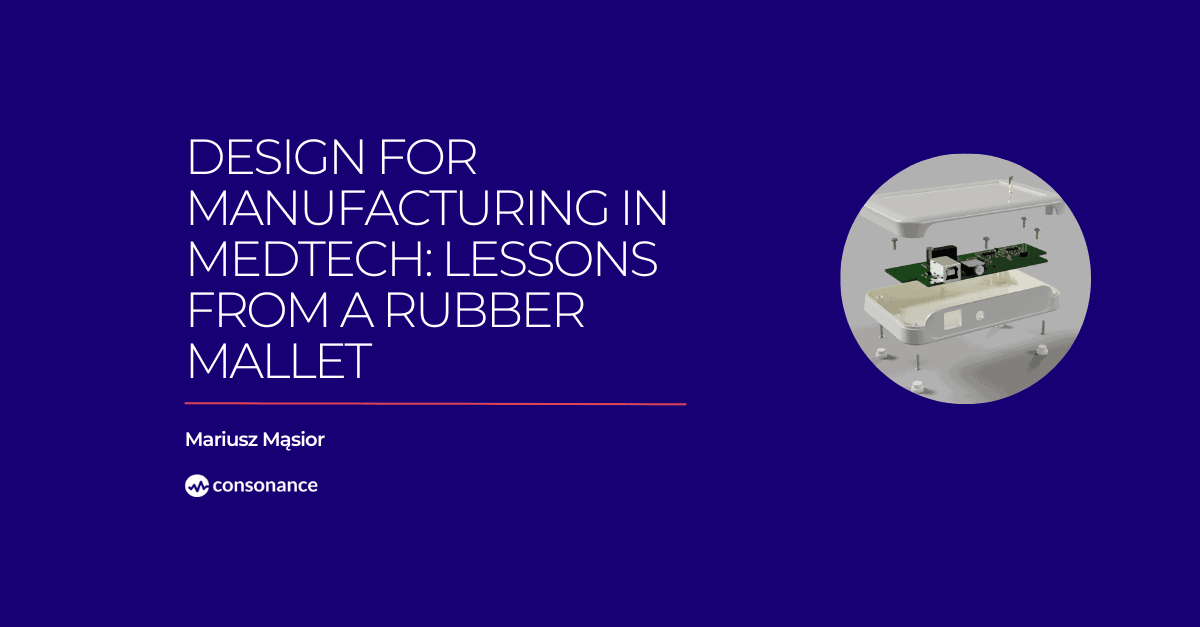 Design for Manufacturing is beautifully summarized by an anecdote. Some time ago a group of American automotive execs visited a Japanese car assembly plant. As they observed the line, they noticed that, like in the U.S., doors were installed at the end of the process. However, one thing was missing. In the U.S., a worker would tap the edges of each door with a rubber mallet to ensure a perfect fit. In Japan, there was no such step. Surprised, the Americans asked when and how the Japanese workers made sure the doors aligned perfectly. Their guide smiled and replied, “We make sure they fit during the design phase.”
Design for Manufacturing is beautifully summarized by an anecdote. Some time ago a group of American automotive execs visited a Japanese car assembly plant. As they observed the line, they noticed that, like in the U.S., doors were installed at the end of the process. However, one thing was missing. In the U.S., a worker would tap the edges of each door with a rubber mallet to ensure a perfect fit. In Japan, there was no such step. Surprised, the Americans asked when and how the Japanese workers made sure the doors aligned perfectly. Their guide smiled and replied, “We make sure they fit during the design phase.”
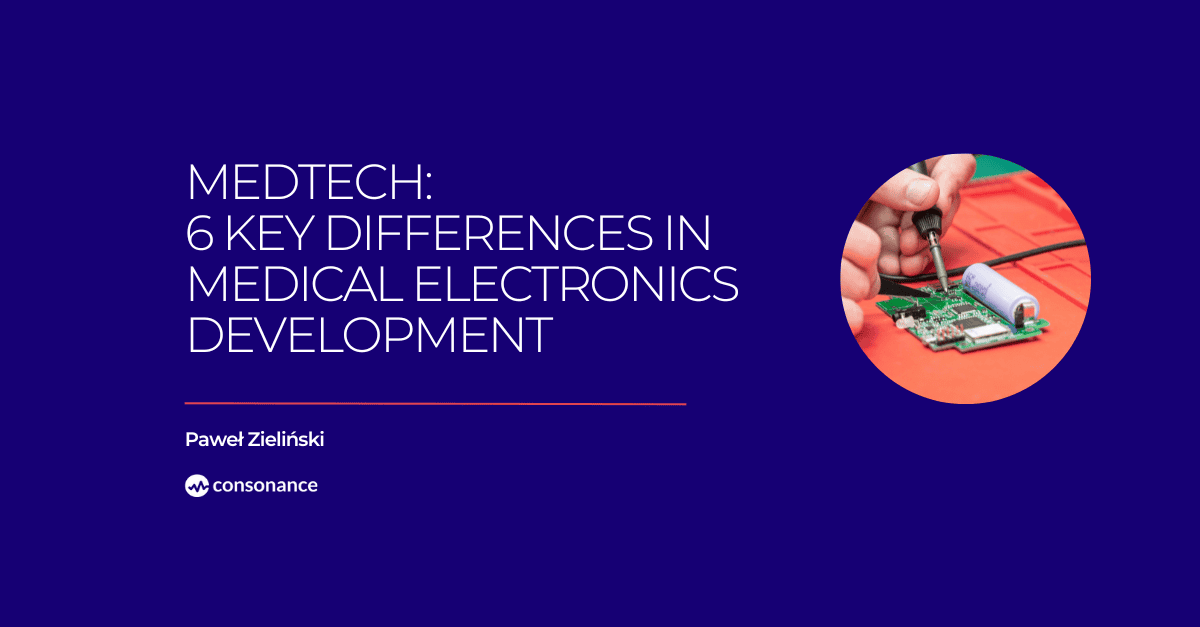 Electronics are everywhere – from the smartphone in your pocket to the electric vehicle on the road. However, when it comes to developing electronics for medical devices, the stakes are much higher. The smallest flaw could mean the difference between life and death, and regulatory hurdles are far more complex than in consumer electronics or industrial applications. But what exactly makes medical electronics development so different? Let’s explore the key factors that set it apart.
Electronics are everywhere – from the smartphone in your pocket to the electric vehicle on the road. However, when it comes to developing electronics for medical devices, the stakes are much higher. The smallest flaw could mean the difference between life and death, and regulatory hurdles are far more complex than in consumer electronics or industrial applications. But what exactly makes medical electronics development so different? Let’s explore the key factors that set it apart.
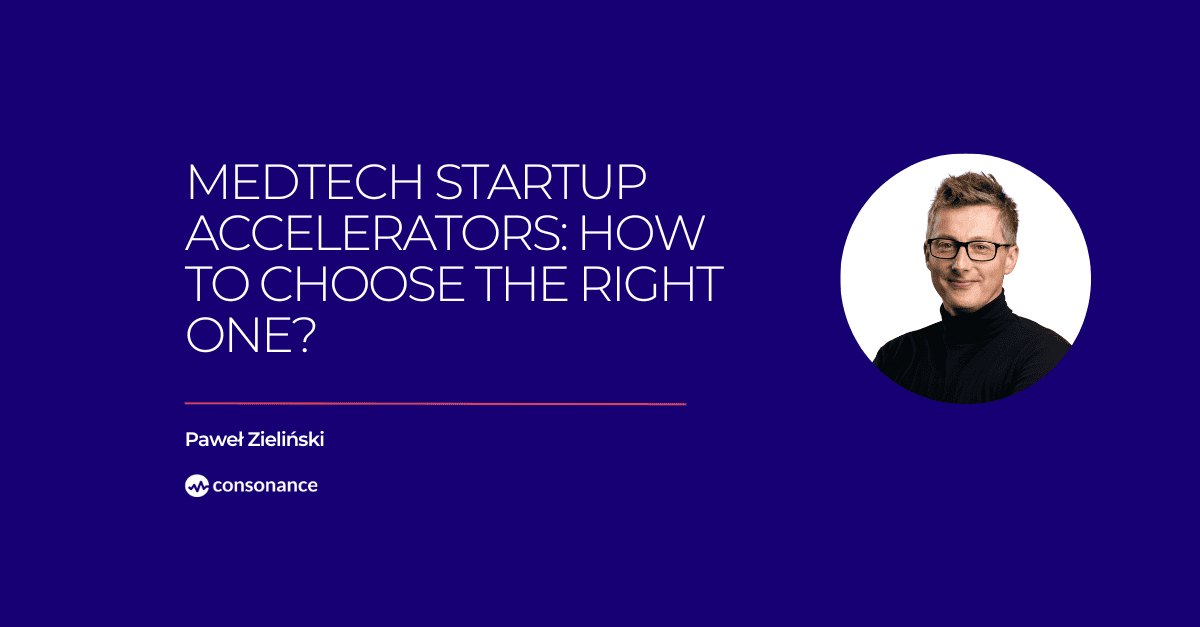 MedTech startup accelerators mix many areas of support making them promising partners for founders. Developing medical devices, digital health solutions, and biotech innovations requires not only technical expertise but also a deep understanding of regulatory compliance, market access, and investor expectations. To help early-stage companies navigate these complexities, MedTech-focused accelerators provide invaluable resources, mentorship, and funding opportunities. So, is there a catch? Let’s discover some pros and cons.
MedTech startup accelerators mix many areas of support making them promising partners for founders. Developing medical devices, digital health solutions, and biotech innovations requires not only technical expertise but also a deep understanding of regulatory compliance, market access, and investor expectations. To help early-stage companies navigate these complexities, MedTech-focused accelerators provide invaluable resources, mentorship, and funding opportunities. So, is there a catch? Let’s discover some pros and cons.
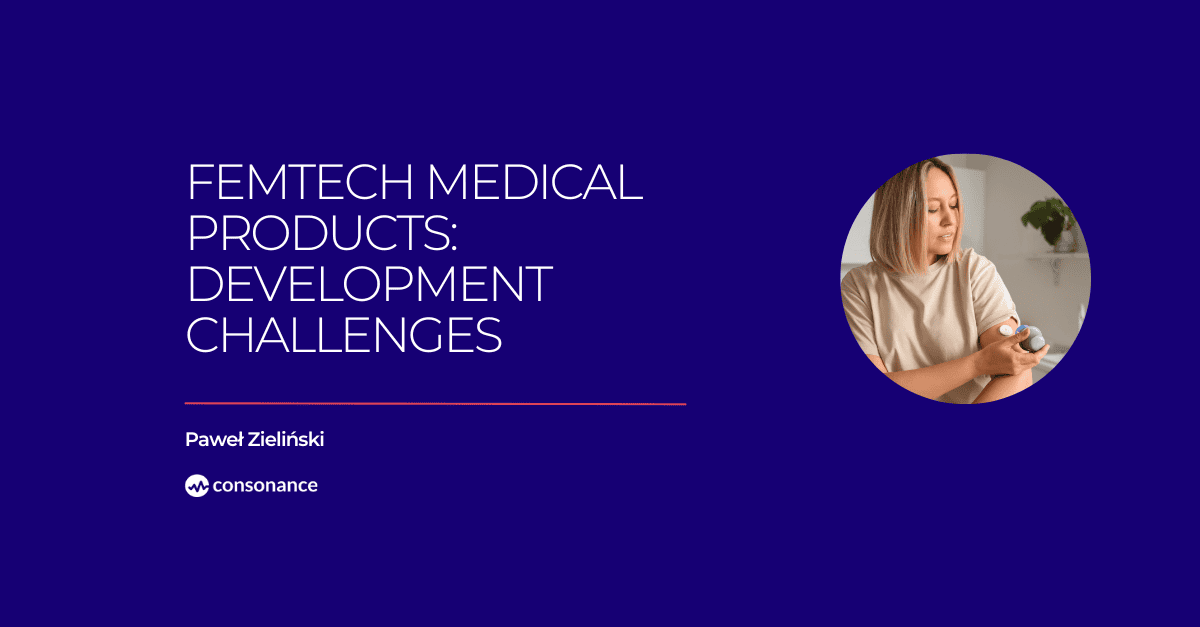 FemTech is a rapidly growing sector dedicated to women’s health, covering everything from menstrual tracking and fertility solutions to menopause care and pelvic health. The global FemTech market was valued at approximately $51 billion in 2021 and is expected to reach $103 billion by 2030, growing at a CAGR of 8.1%. Despite the potential to revolutionize healthcare for women, the development of FemTech medical products faces significant hurdles in both hardware and software.
FemTech is a rapidly growing sector dedicated to women’s health, covering everything from menstrual tracking and fertility solutions to menopause care and pelvic health. The global FemTech market was valued at approximately $51 billion in 2021 and is expected to reach $103 billion by 2030, growing at a CAGR of 8.1%. Despite the potential to revolutionize healthcare for women, the development of FemTech medical products faces significant hurdles in both hardware and software.
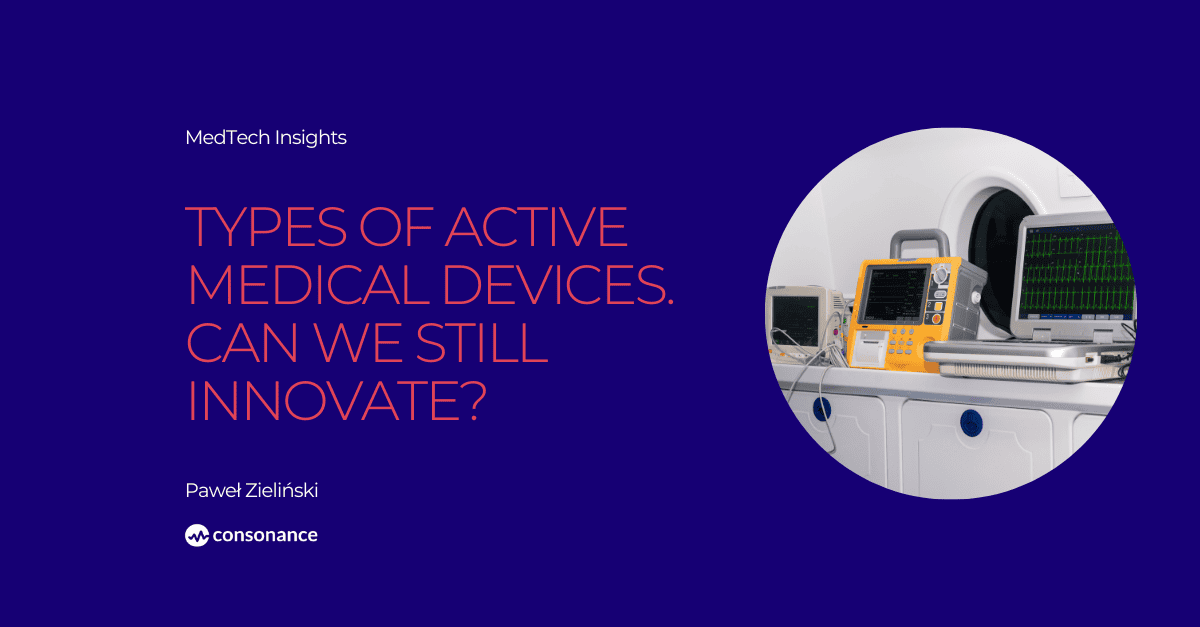 Technology plays a crucial role in improving active medical devices. Among the technological marvels, they hold a prominent position. These devices, powered by electrical or mechanical energy, are indispensable in hospitals, clinics, and even homes. In this article, we delve into the most common types of active medical devices. In the end ask yourself some questions: Is there a space for yet another innovation? What innovation actually is: another piece of hardware or using existing technology for a different purpose?
Technology plays a crucial role in improving active medical devices. Among the technological marvels, they hold a prominent position. These devices, powered by electrical or mechanical energy, are indispensable in hospitals, clinics, and even homes. In this article, we delve into the most common types of active medical devices. In the end ask yourself some questions: Is there a space for yet another innovation? What innovation actually is: another piece of hardware or using existing technology for a different purpose?
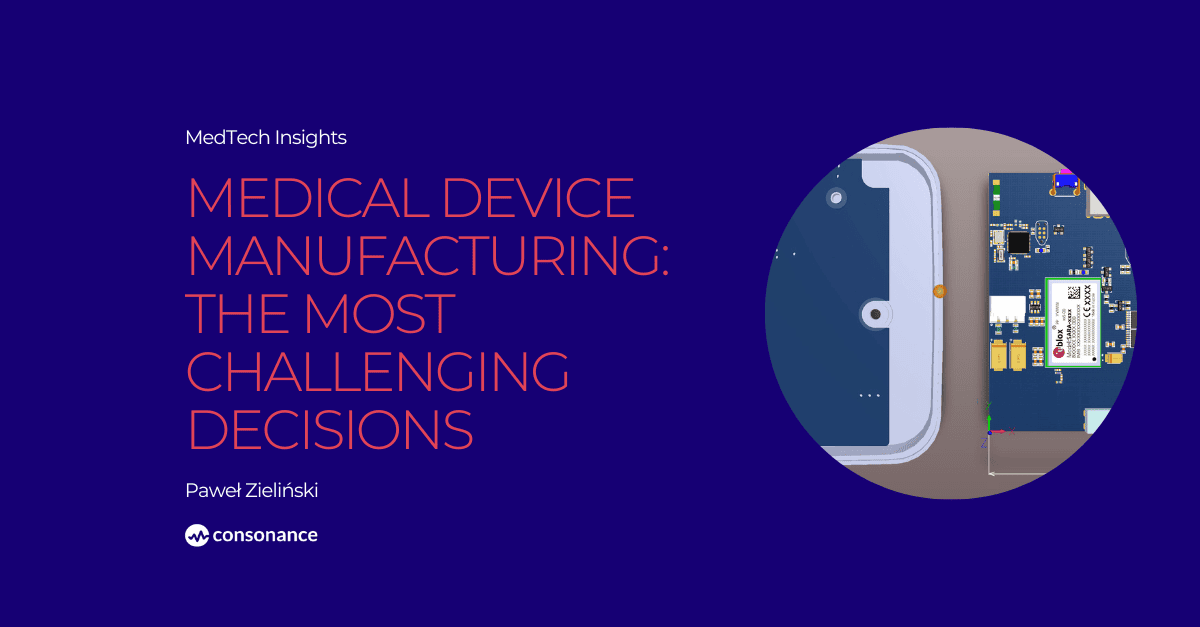 Medical device manufacturing represents a nexus of advanced technology, rigorous regulatory oversight, and critical attention to safety and reliability. The stakes couldn’t be higher: patients’ health and lives often depend on the flawless performance of these devices. From innovative diagnostic tools to life-sustaining implants, the journey from concept to market is fraught with challenges that test the limits of engineering, compliance, and strategic decision-making.
Medical device manufacturing represents a nexus of advanced technology, rigorous regulatory oversight, and critical attention to safety and reliability. The stakes couldn’t be higher: patients’ health and lives often depend on the flawless performance of these devices. From innovative diagnostic tools to life-sustaining implants, the journey from concept to market is fraught with challenges that test the limits of engineering, compliance, and strategic decision-making.
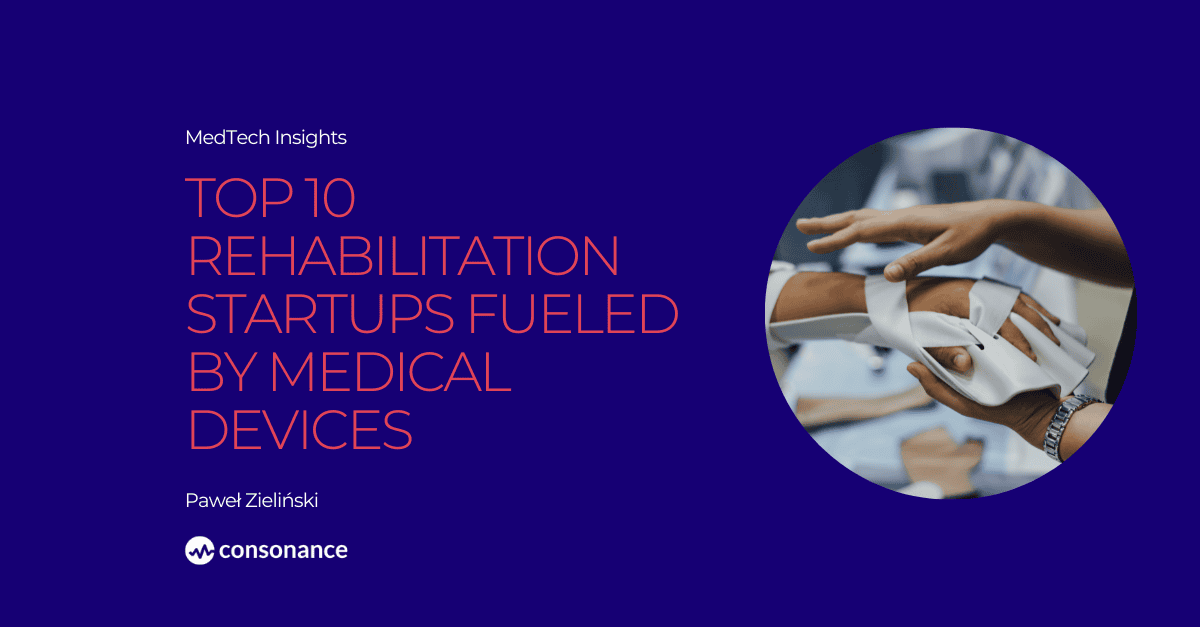 Rehabilitation space is undergoing a transformative shift, led by rehabilitation startups that are reshaping how patients recover. These innovative companies are introducing advanced devices that make recovery faster, smarter, and more tailored to individual needs. Through cutting-edge robotics, AI-driven applications, and smart wearables, patients can now access high-quality rehabilitation support from home. This evolution not only empowers patients but also enables more accurate and responsive therapy for a wide range of conditions, from neuromotor impairments to osteopathies.
Rehabilitation space is undergoing a transformative shift, led by rehabilitation startups that are reshaping how patients recover. These innovative companies are introducing advanced devices that make recovery faster, smarter, and more tailored to individual needs. Through cutting-edge robotics, AI-driven applications, and smart wearables, patients can now access high-quality rehabilitation support from home. This evolution not only empowers patients but also enables more accurate and responsive therapy for a wide range of conditions, from neuromotor impairments to osteopathies.
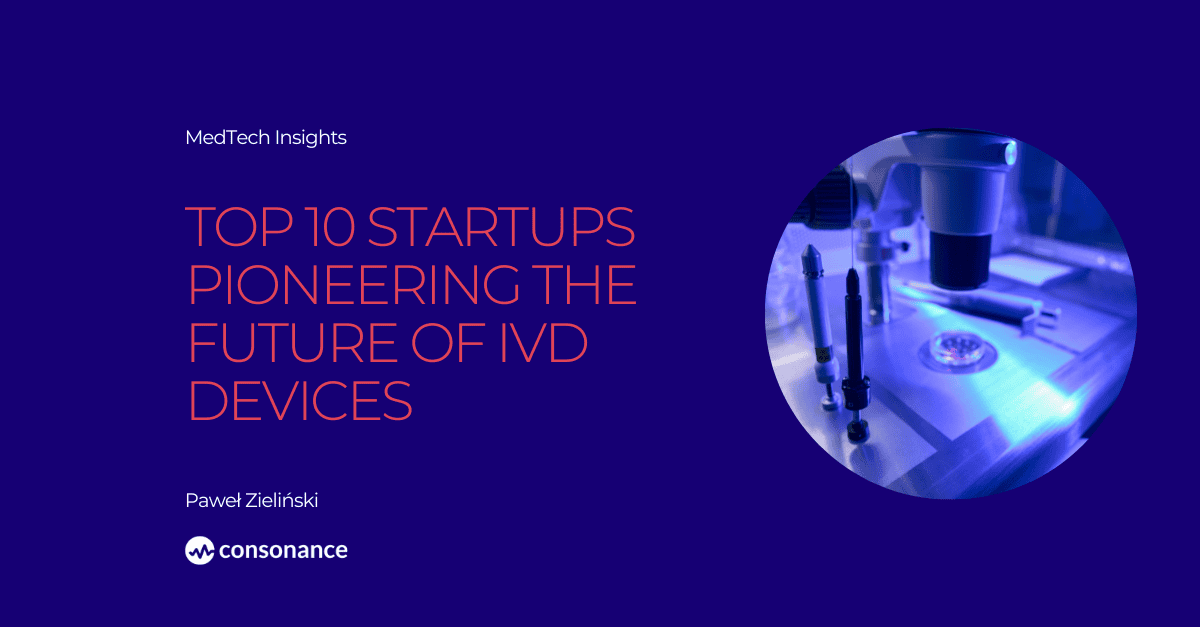 IVD devices (In Vitro Diagnostic) encompass a wide range of tests and analyses performed on samples taken from a patient’s body, such as blood, saliva, urine, or tissue. Traditionally limited to laboratory settings, there is a growing trend to move diagnostics to point-of-care (POC) environments or even to patients’ homes, significantly reducing the time required to obtain results. The applications of IVD devices are extensive, covering diagnostics, health monitoring, and therapy effectiveness assessment.
IVD devices (In Vitro Diagnostic) encompass a wide range of tests and analyses performed on samples taken from a patient’s body, such as blood, saliva, urine, or tissue. Traditionally limited to laboratory settings, there is a growing trend to move diagnostics to point-of-care (POC) environments or even to patients’ homes, significantly reducing the time required to obtain results. The applications of IVD devices are extensive, covering diagnostics, health monitoring, and therapy effectiveness assessment.
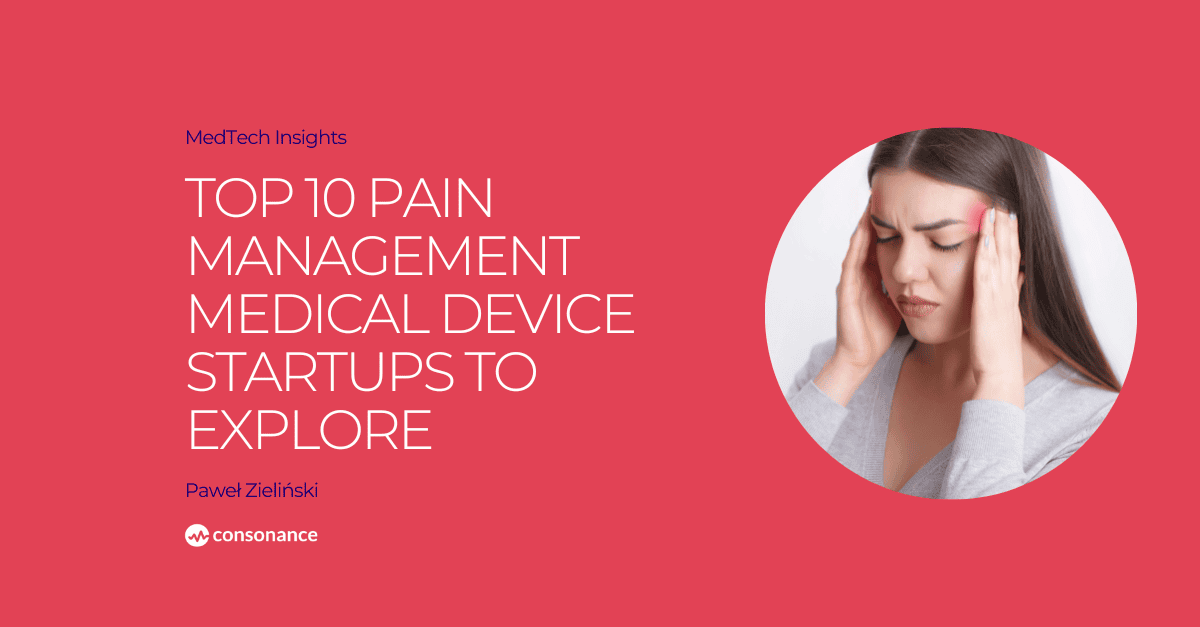 In recent years, pain management medical devices have been gaining increasing popularity in the MedTech market. One key factor driving this trend is the desire to minimize the reliance of medications and opioids, which can lead to addiction. The appeal of these solutions is especially evident among individuals leading sedentary lifestyles, where lumbar and neck pain have become common issues. Devices such as TENS (Transcutaneous Electrical Nerve Stimulation) offer a non-invasive alternative to traditional pharmacological therapies by using nerve stimulation to block ache.
In recent years, pain management medical devices have been gaining increasing popularity in the MedTech market. One key factor driving this trend is the desire to minimize the reliance of medications and opioids, which can lead to addiction. The appeal of these solutions is especially evident among individuals leading sedentary lifestyles, where lumbar and neck pain have become common issues. Devices such as TENS (Transcutaneous Electrical Nerve Stimulation) offer a non-invasive alternative to traditional pharmacological therapies by using nerve stimulation to block ache.
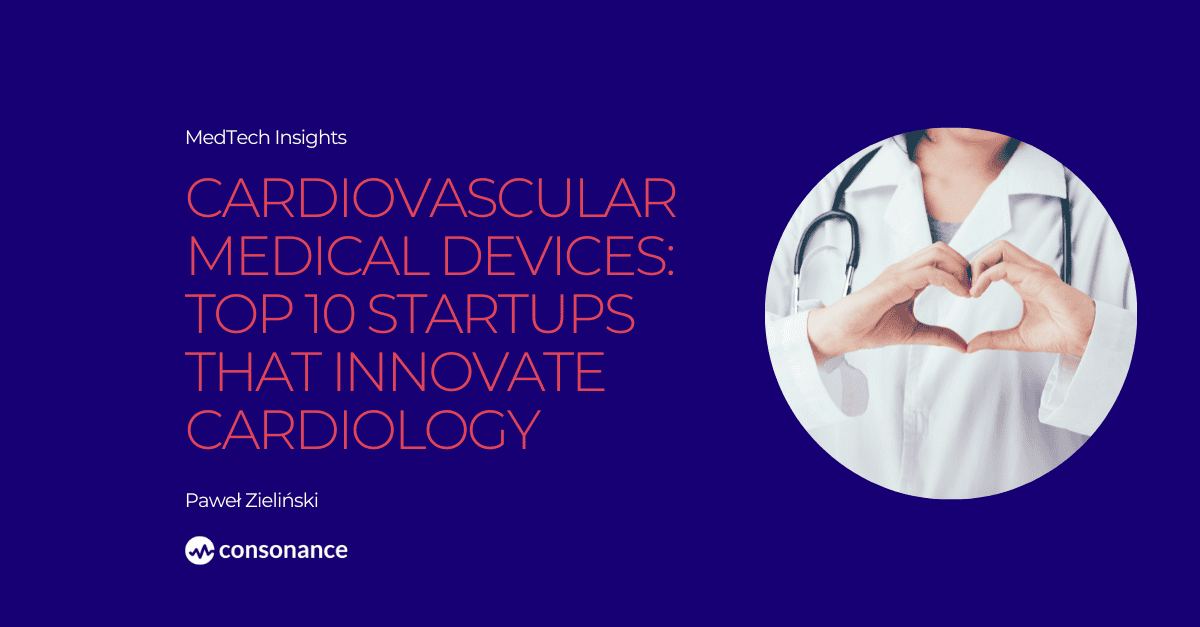 Cardiovascular medical devices are essential tools in diagnosing and treating heart conditions, as cardiovascular diseases remain a leading cause of mortality worldwide. With the rising need for early detection and management of heart conditions, startups are stepping up to develop cutting-edge solutions that revolutionize how we monitor, treat, and improve heart health.
Cardiovascular medical devices are essential tools in diagnosing and treating heart conditions, as cardiovascular diseases remain a leading cause of mortality worldwide. With the rising need for early detection and management of heart conditions, startups are stepping up to develop cutting-edge solutions that revolutionize how we monitor, treat, and improve heart health.
